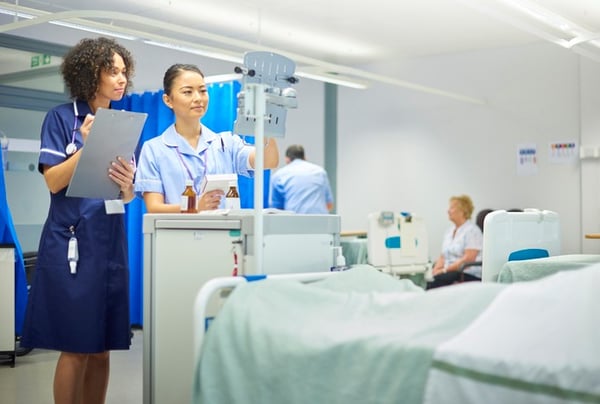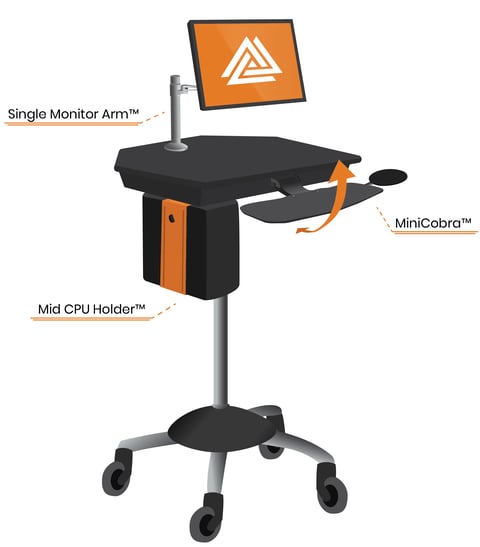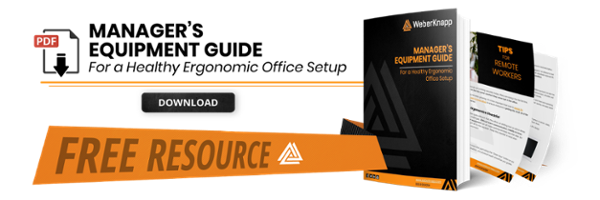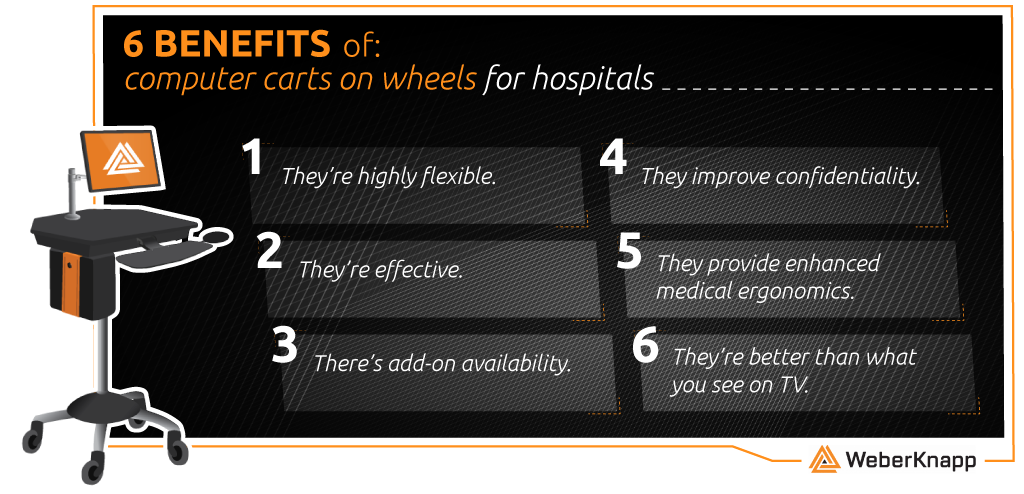 The way health care is delivered in hospitals is changing. Yet every medical center must still meet the same standards of exceptional care.
The way health care is delivered in hospitals is changing. Yet every medical center must still meet the same standards of exceptional care.
One of the ways medical care is changing is the legislative mandate to log all patient records electronically, replacing old-school filing cabinets and paper documentation. This poses a unique question to medical centers: What’s the most effective way to handle electronic health records? While facilities have rolled out a variety of solutions, among the most effective and efficient is the computer on wheels cart, or COW.
What makes medical workstations on wheels such an effective and efficient solution in the ever-evolving medical environment?
6 Benefits of Adopting Computer Carts on Wheels for Your Hospital
Much like an actual cow, medical COWs aren’t exactly beautiful, but they sure are functional. There are six main reasons why:
- Flexibility
- Effectiveness
- Add-on availability
- Confidentiality
- Ergonomics
- Better than the alternatives
1. They’re highly flexible.

Medical workstations on wheels let doctors, nurses, and other qualified staffers "take the office with them." Rather than relying on note taking and memory to log information after seeing a patient, they can roll their desks into patient rooms and document information as they're speaking with them or while analyzing their test results.
It's this real-time flexibility and improvement in overall operations that have made the hospital an easier, more convenient place to be a staff member or patient. It’s also a lot less stressful for staff members who are already juggling several important tasks at once.
2. They're effective.
In an outdated setup, a health care provider enters a patient’s room, speaks with the patient, and then retreats to an office or a stationary hall computer to log information. Sometimes the data input happens 10 minutes or more after seeing the patient. Not only is this inefficient from a time perspective, but it can also be very prone to error.
By using a medical workstation on wheels:
- Patient-staff interaction is enhanced
- Appointments and hospital stays are often shorter
- The hospital can resolve patient issues more quickly
In an environment where time equals money, mobile computer carts can make a big difference in return on investment.
3. There’s add-on availability.
COWs often go beyond simple computers on rolling desks. Think of them more like full-blown mobile medical carts.
There are several add-ons that staff can integrate into their COWs to further improve and streamline patient care. A few of the add-ons your medical cart purchase may offer include:
- Ultrasound equipment
- Equipment for checking vital signs
- Tools for drawing blood
4. They improve confidentiality.
In addition to facilitating a more streamlined hospital environment, COWs beef up patient confidentiality. Entering data in a patient's room is a much more private situation than entering it in a hall or shared office.
Those who want to take privacy a step further can purchase locking medical carts to keep patient data behind a keypad or other mechanism. COWs can even be customized with cutting-edge password protection, such as fingerprint identification, so patients can rest assured their sensitive information is not being passed around freely.
5. They provide enhanced medical ergonomics.
Your staff will love COWs, too. In addition to improving the efficiency of their jobs and performing their daily tasks, COWs are a serious upgrade in ergonomics. Studies estimate that nonadjustable desks generate about 2x as many health issues among staff than height-adjustable desks.
An adjustable keyboard tray mechanism and adjustable desk height are features of any good medical cart mechanism. A little flexibility is an easy way to improve workplace ergonomics over entering data into a wall-mounted or office computer.
For a detailed look at other ergonomic equipment, check out this managers ergonomic resource guide: 
6. They're better than what you see on TV.
You've probably seen the emergency room dramas where all the doctors are walking around with iPads or other tablet computers. While they're popular in the medical industry, they're far from efficient. Typing on a handheld computer is awkward and takes too long in such a fast-paced setting.
Plus, on a technical level, tablet computers are physically unable to keep up with the stress of the job. They have limited battery life and the data input (aka typing) is not as responsive as a keyboard on a COW. Even though tablet computers are lightweight and mobile, they lack the efficiency and technical power to get the job done.

Shop Around
Medical care has changed. Your customers’ expectations have not. Adding computer carts on wheels to your health care environment can be a big win not just for patients, but for their caretakers too.
Remember, different medical cart providers offer different features. Decide what matters most for your staff and patients, and shop around to find the most flexible solution.
Have ergonomic or motion control questions? Ask an engineer below:
(Editor's note: This article was originally published in November 2019 and was updated in August 2021.)
.png?width=12000&height=2033&name=WeberKnappLogo_white%20(1).png)


